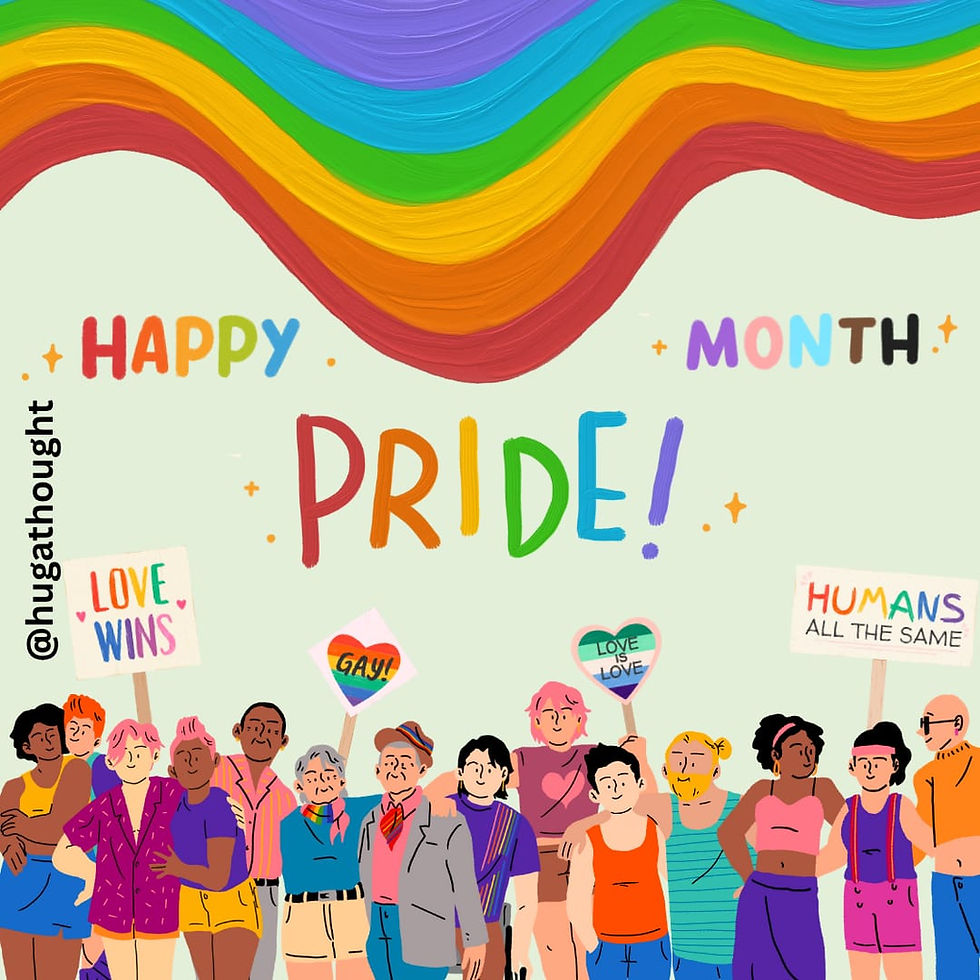Borderline Personality Disorder Awareness Month: Understanding, Compassion, and Hope
- Zeina Sravya
- May 17, 2025
- 4 min read

Each year, the month of May is observed as Borderline Personality Disorder (BPD) Awareness Month, a vital opportunity to break the stigma, spread accurate information, and foster empathy for those living with this often-misunderstood mental health condition. Though BPD affects millions globally, it remains shrouded in misinformation, judgment, and silence. This month is about changing that—one story, one conversation, one act of compassion at a time.
What Is Borderline Personality Disorder?
Borderline Personality Disorder is a complex and deeply impactful mental health condition characterized by pervasive patterns of instability in emotions, self-image, behavior, and interpersonal relationships. While symptoms and intensity vary among individuals, common features include:
Emotional dysregulation: Sudden and intense mood shifts that may last hours or days.
Fear of abandonment: An extreme sensitivity to the possibility of being left or rejected, often leading to frantic efforts to avoid real or imagined abandonment.
Unstable relationships: Shifting between idealizing and devaluing others (often referred to as "splitting").
Distorted self-image: A shaky sense of identity that can lead to frequent changes in goals, values, or self-worth.
Impulsive behaviors: Actions that may be self-damaging, such as reckless driving, binge eating, substance use, or unsafe sex.
Chronic feelings of emptiness.
Intense anger or difficulty controlling anger.
Dissociation or feeling disconnected from one’s body or surroundings, especially during stress.
BPD is not a character flaw or a choice. It’s a disorder rooted in a combination of genetic vulnerability, environmental factors (such as trauma or neglect), and neurobiological differences, particularly in the areas of the brain that regulate emotion and impulse control.
The Importance of Awareness
Unfortunately, BPD is often stigmatized—even within mental health communities. Individuals with BPD are sometimes mislabeled as “manipulative,” “difficult,” or “too much,” which can lead to feelings of shame, isolation, and reluctance to seek help.
Awareness means rewriting this narrative. It means recognizing that people with BPD are not broken or bad—they are people in pain, often navigating overwhelming emotions without the internal tools to regulate them. It means seeing their worth beyond their symptoms, and understanding that they can—and do—get better with the right support.
Healing Is Possible
Though BPD was once seen as a lifelong condition with little hope for recovery, this is no longer the case. Evidence-based treatments, particularly Dialectical Behavior Therapy (DBT), have shown significant success in helping individuals with BPD build emotional resilience, improve relationships, and reduce self-harming behaviors. Other therapeutic approaches such as Mentalization-Based Therapy (MBT), Schema Therapy, and Transference-Focused Psychotherapy (TFP) have also been effective.
Recovery doesn’t mean never struggling again. It means developing skills to manage the struggle. It means finding hope in moments of darkness and learning to trust oneself again. It means building a life worth living—on one's own terms.
What You Can Do This BPD Awareness Month
1. Educate Yourself and Others
Learn about the signs, symptoms, and challenges of BPD from reputable sources. Share articles, infographics, or personal stories that highlight the reality of living with BPD. Awareness starts with education.
2. Challenge Stigma
If you hear harmful stereotypes or misinformation—whether in media, in conversation, or even in healthcare settings—speak up. Stigma can be deadly; silence allows it to thrive.
3. Listen Without Judgment
If someone you know has BPD, try to meet them with empathy, not assumptions. Their behavior may be difficult at times, but it is often a reflection of deep pain and emotional overwhelm—not manipulation or malice.
4. Support Mental Health Advocacy
Contribute to organizations and grassroots efforts that focus on BPD awareness, treatment access, and suicide prevention. Volunteer your time, donate if you can, or help amplify their message online.
5. Practice Compassion—For Yourself, Too
Whether you live with BPD, love someone who does, or work in mental health, this journey can be exhausting. Make space for your own needs and healing. Remember that you don’t have to have all the answers to offer support; sometimes presence is enough.
A Note to Those Living with BPD
To those with BPD reading this: You are not “too much.” You are not a burden. You are not unlovable. Your emotions may be intense, but they are valid. Your pain is real, and your journey matters.
You deserve respect, understanding, and access to care. And even if it feels like you're drowning some days, know that healing is not only possible—it’s happening. You are growing every time you choose to stay, to reach out, to try again.
Let May be a reminder that there is a whole community out here that sees you. That believes in your potential. That knows recovery is real.
Final Thoughts
Borderline Personality Disorder Awareness Month is about honoring the truth behind the diagnosis—the humanity, the hurt, and the hope. It’s a call to move beyond fear and ignorance, to make space for compassion, and to create a world where mental health is met with understanding instead of judgment.
Let us commit, this month and always, to be allies, advocates, and compassionate companions in the lives of those affected by BPD. Because awareness is not just about knowing more—it’s about caring more.






Comments